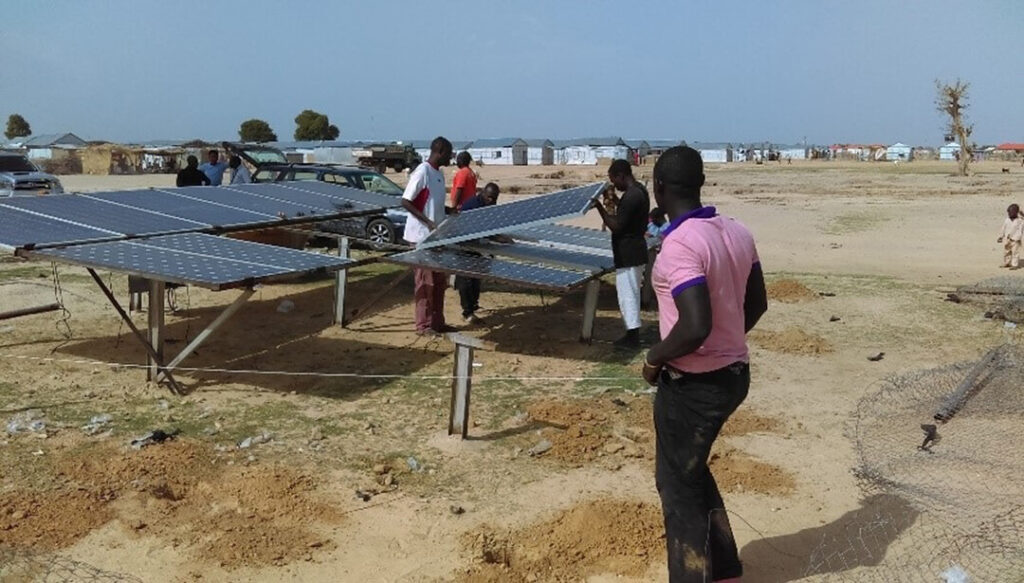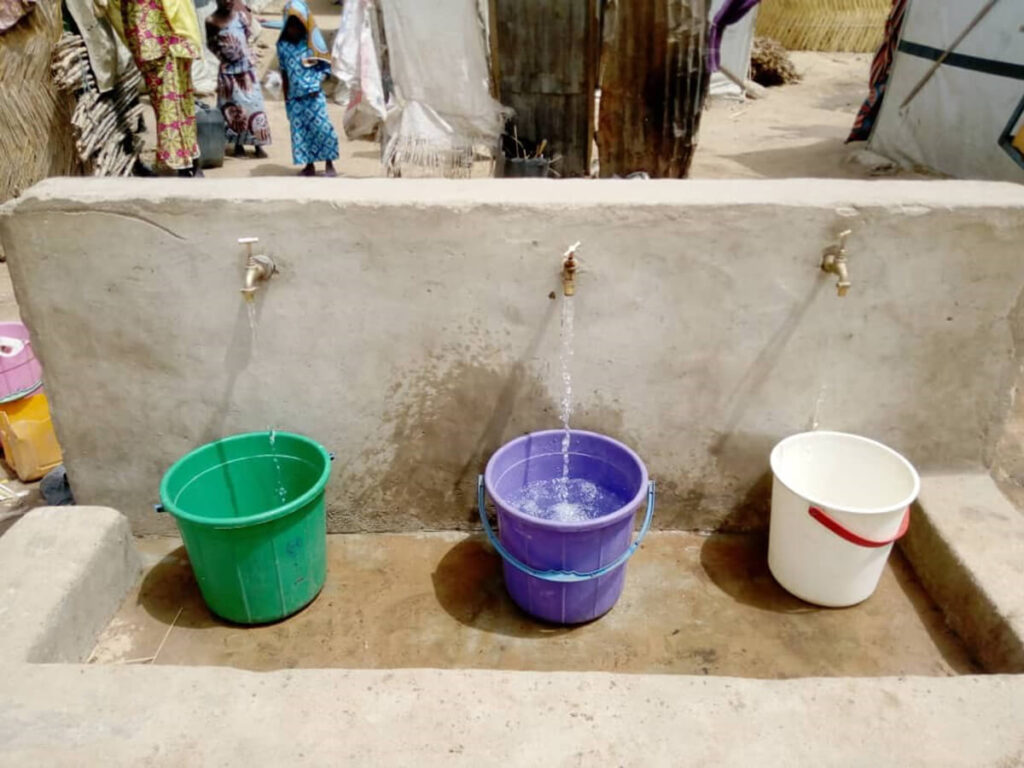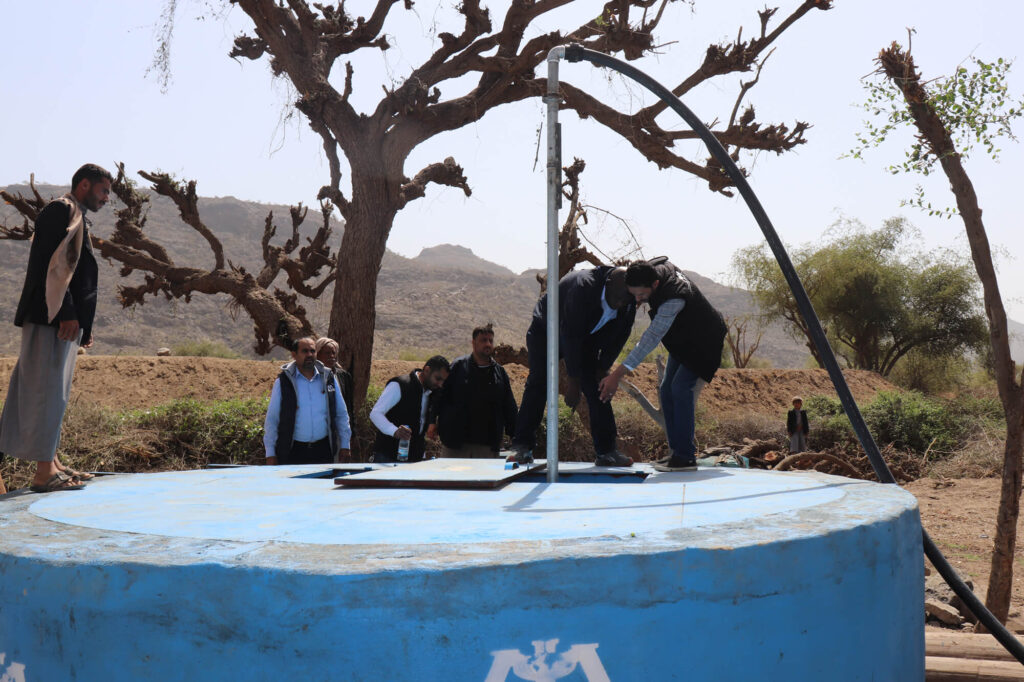In 2020, International Medical Corps used diesel-fueled trucks to deliver approximately 315,000 liters of clean water daily across five refugee camps in Nigeria. Clean water is essential for drinking, cooking, sanitation and hygiene, which helps to prevent malnutrition, infection and disease. Though our assistance was invaluable, delivering water by truck is not cost-effective or energy-efficient. And in between water deliveries, community residents had to travel hours through dangerous territory to the closest working aquifer, leaving them open to harassment and abuse—or worse—during their journey.
To provide safe, sustainable, long-term sources of clean water to these communities, we needed a better method. Our team decided to harness the power of the sun.
“Given the current price inflation and the absence of steady fuel access in Nigeria, using solar panels to power water systems—though expensive to install—provides a low-cost, sustainable solution for water delivery without negatively affecting the environment,” explains Syed Yasir Ahmad, Water, Sanitation and Hygiene (WASH) Advisor at International Medical Corps.

In January 2021, the WASH team in Nigeria drilled 12 boreholes and equipped them with solar-powered pumps at camps in Damboa and Maiduguri Bakassi. To ensure that the water is clean and usable, water treatment pumps were included in the borehole system. As a result, cases of diarrhea among children have decreased. The borehole system also delivers water to latrines, showers and washing areas, making effective hygiene easily accessible to everyone, including people with disabilities. Finally, the boreholes are connected to three storage containers with capacities ranging from 5,000 to 10,000 liters, so the clean water can be stored for future use.
Though we still deliver clean water daily to the camps, the boreholes and storage system have meant that we deliver only 126,000 liters daily, an amount that is far more sustainable. And to make sure the system remains functional long-term, our team trained community members on water management and solar-pump maintenance.

Nigeria is not the only place where we have installed a solar-powered system. In Afghanistan, we installed a solar-powered system last year that provides easily accessible, clean water to a village of 3,710 people in Nangarhar province.
Now that we don’t have to go a long distance for water, everyone is doing their daily work, and women and children have more time to invest in education and child care. It is such a blessing.
Niaz Wali, villager
Also in 2020, we installed a submersible pump as part of a solar-powered water system in Yemen that connects two villages and a school in Sana’a governorate to a water tank, providing clean water to thousands of residents. An uncovered and exposed well can spread waterborne diseases like cholera; a submerged pump and covered tank reduce disease risk.

Water is essential to life, and when clean water is readily accessible by simply turning on the tap, we sometimes forget that this is not the case for many people on the planet. For those people, it can be several hours away. Our WASH teams around the world are working to close that gap. In addition to our projects in Nigeria, Afghanistan and Yemen, we also harness solar energy to meet daily water needs in Ethiopia, Somalia and Zimbabwe, adding to the extensive number of WASH programs we provide globally.